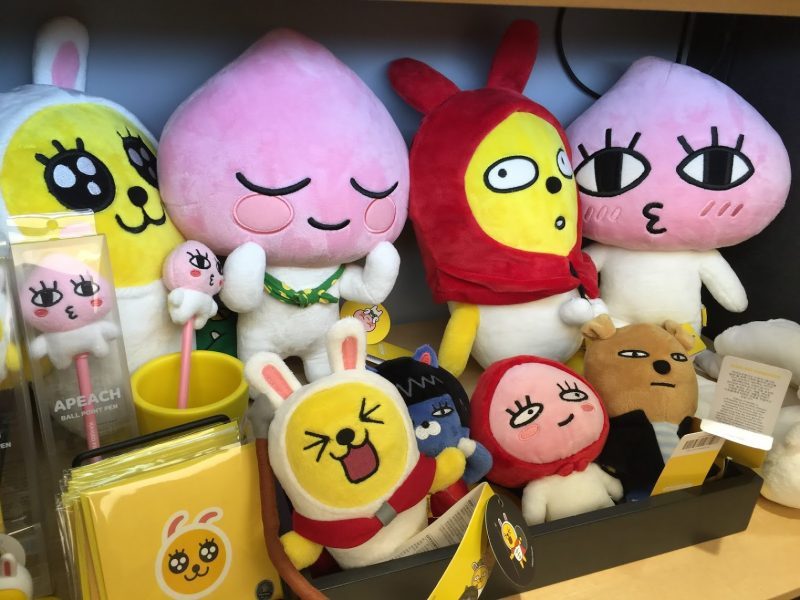Half of January already flew by, so let’s check up on my goals that I set in the beginning of the month:
Continue reading “Mid-month check up”Speaking & Language Exchange apps
We all know, that languages have 4 aspects to them, 2 passive and 2 active. Speaking and Writing are active (output) and Listening and Reading are passive (input). The majority of traditional learning concentrates on just 2 aspects of these 4 – Writing and Reading, and as a result people who studied languages for years at school or universities cannot string even a couple of sentences together in a conversation with a native speaker because they never learned the skills.
In reality, written and spoken languages are so different, that it’s even said that when we go to school at the age of 6 we learn our first foreign language – our mother tongue in written form. We learn that “I’m gonna” should be written as “I’m going to” and so on and so on.
Back in 2015, when I was studying Korean every day I was doing the same mistake – focusing too much on reading and writing and not enough on listening and speaking. I was in a hurry, because I booked my tickets to Seoul in April, and in January 2016 I still couldn’t say anything and then I found this video and it basically changed my life.
I looked for Korean people on Hello Talk and even found some cool ones that became my friends to this day. I tried my best to meet as many exchange students here in Ljubljana as I could and hang out with them. I listened to KoreanClass101 dialogues on repeat for hundreds of times. I was lucky to be able to practice with the wife of our professor here in Ljubljana. And it worked.
Speaking is actually a sort of a muscle memory, like dancing, cycling or snowboarding. Once you say one sentence or word, you might say it awkwardly the first time, second time will be a bit better and third will be much, much better. But you gotta push yourself through that awkwardness and moments where you feel like an idiot. My first conversations in Korean and Chinese sounded like if I was a 2-3 year old baby, but with each conversation I grew and matured, expanded my vocabulary and improved the pronunciation.
I guess my main point here is: If you are learning the language just to read and write, it’s fine, you don’t need to practice speaking. But if you hope to speak with native speakers in the future – you need to work on those skills, they won’t just appear by themselves.
I wanted to write this post about language exchange apps and it became about speaking in general, I’m not sure how that happened 🙂
Here are the apps that I personally tried:
- HelloTalk
- Italki (paid and you can also look for people who want to do the language exchange for free)
- Facebook groups (for example in Korean language group people often ask whether anyone would be interested in speaking Korean to them and surprisingly there’s always quite a lot of volunteers)
There’s also an interesting practice that can be done alone, and it is called Shadowing. I won’t go into too much detail on it, here is a post that sums it up pretty nicely.
Language Parent
At the beginning of 2016 I have stumbled upon this video and it completely changed my mind. Up to that point I’ve been learning Korean every day for at least 5 months (I started in August) and I couldn’t string even a couple of sentences together, even though I could already read and write some things.
After watching this video I realized that I urgently needed to start looking for a Korean language parent and did not stop until I found her – the wife of a Korean professor at the University of Ljubljana, who kindly agreed to talk to me for an hour or two once a week, and she was nice enough to do it completely free, just out of her love for Korean language. Only thanks to her I was able to start speaking in just 8 months from the beginning of the study (in January 2016 I came across this video, in April I already spoke Korean during my trip to Korea).
Back then I didn’t know about italki, so I was always on lookout for Korean exchange students in Ljubljana, always trying to hang out with them just for the sake of practising the language with them. This year I discovered italki, and now finding a language parent has never been easier, no more awkward conversations with random people, just pay the price of one or two coffees and talk as much as you want))
Chinese vs Korean
Yesterday I had a call with my Korean friend Tiffany to practice Korean. It went quite well, however, I noticed something interesting – I wanted to use Chinese grammar to say “I have a friend” – In chinese it is “I – there is – one – piece – friend” with a counter word, but in Korean the word order is totally different, the verb goes at the end and there is not counter word – it is just “I – friend – there is”. I got so confused for a moment, but luckily I remembered the correct way quickly.
It got me thinking that now my Chinese is starting to overpower Korean and that probably I should practice Korean more or maybe even come back to Korean books and start learning again, because right now I’m just keeping it in maintenance mode. I also thought how I’m still not satisfied with my Korean. I can talk in Korean non-stop for one hour, but it’s not fluent, I have to think what I’m going to say, sometimes I get stuck. In other words, it’s far from perfect.
So last night I was again dreaming of going to Korea to learn the language properly. I even started checking out different visa options etc. We’re in the middle of the pandemic so of course it’s not gonna happen any time soon, but we all have dreams and aspirations, and this is one of mine. However, as soon as I start to think about it the second voice chimes in: “and what about Mandarin? You have to take it to fluency as well!” and I just get overwhelmed 🙂
But I think that luckily I’m still young and with the right planning and cooperation from my hubby we might just be able to pull it off 😉


